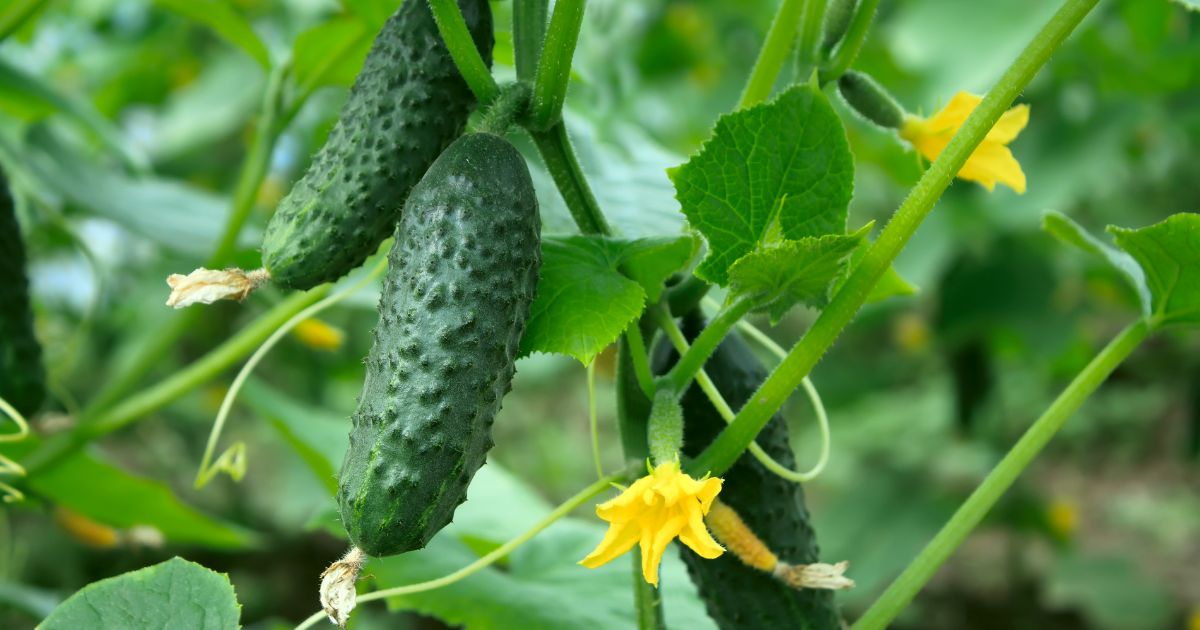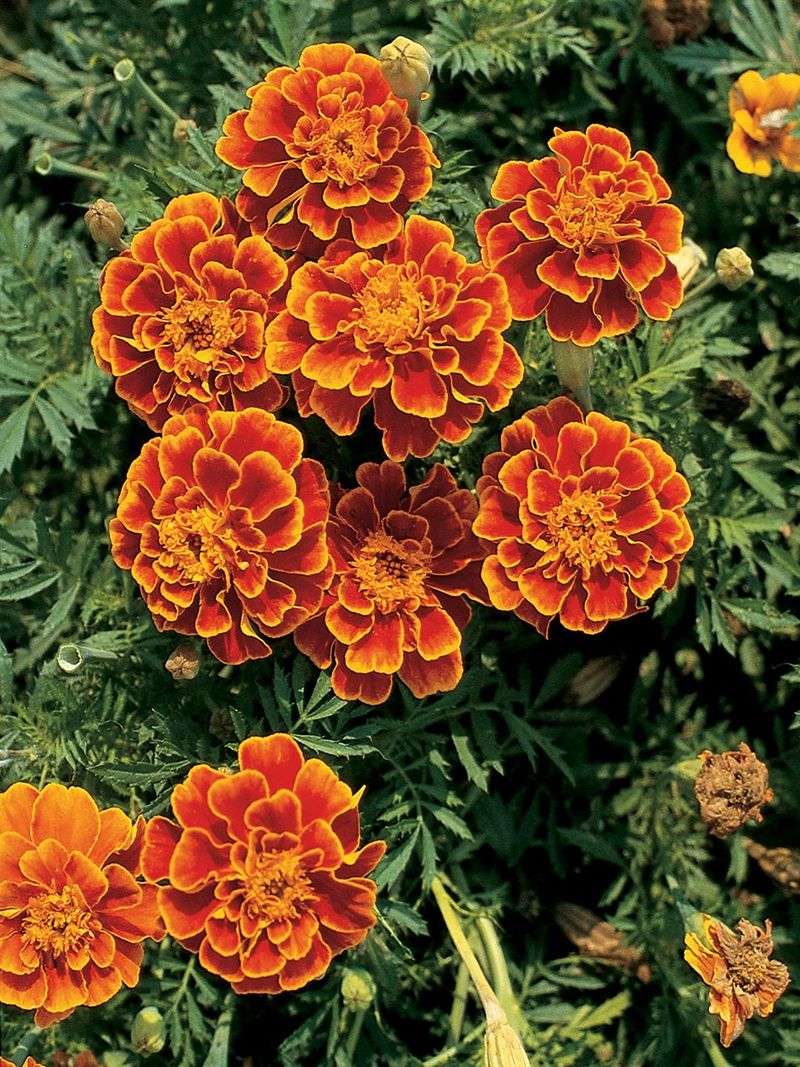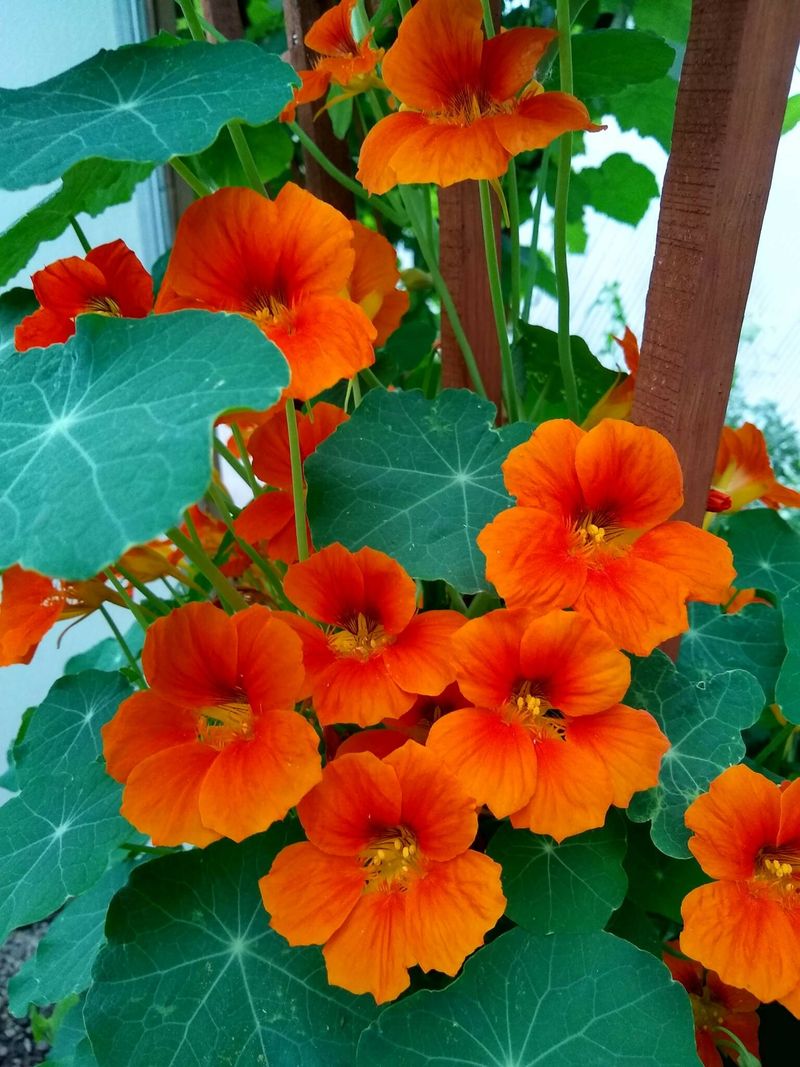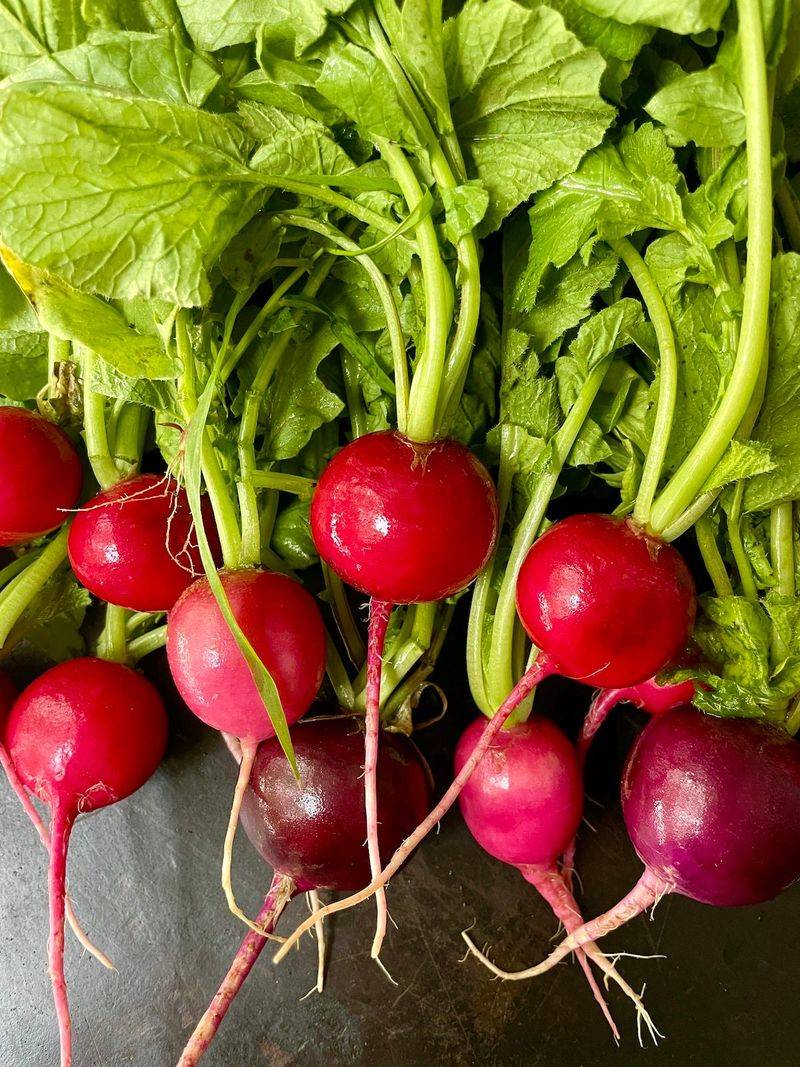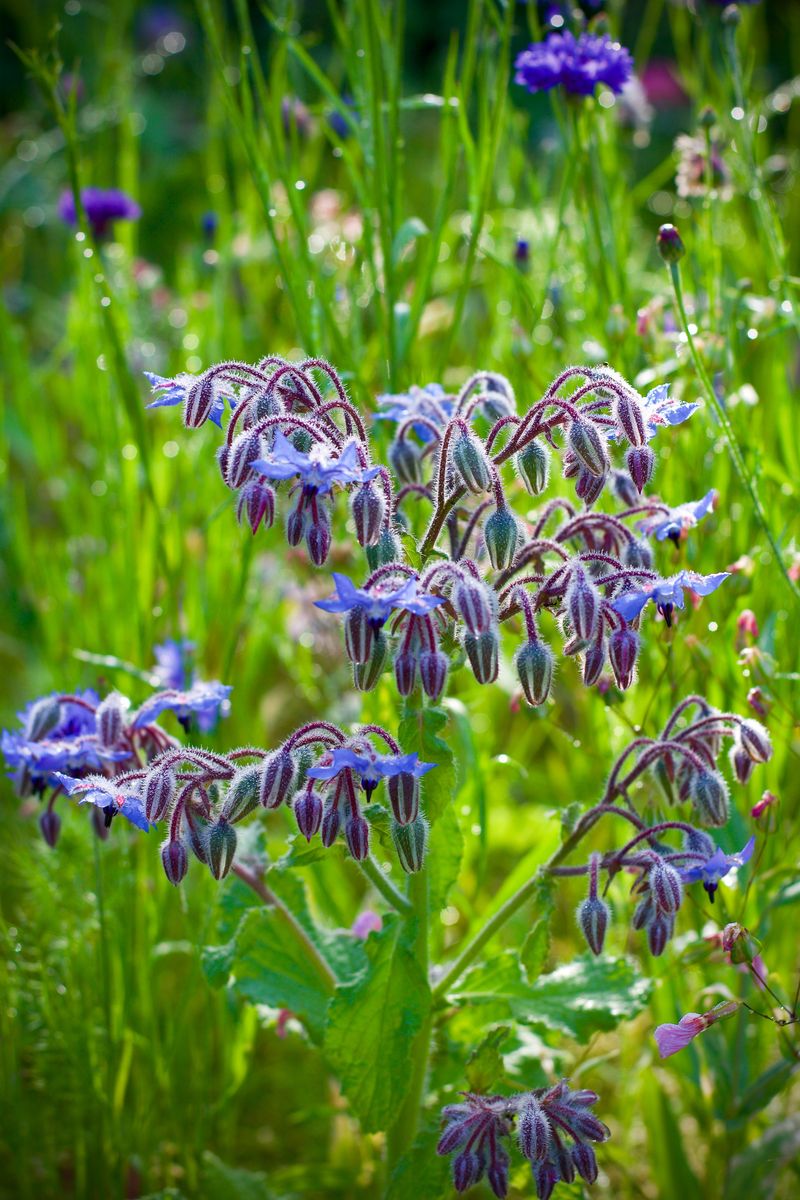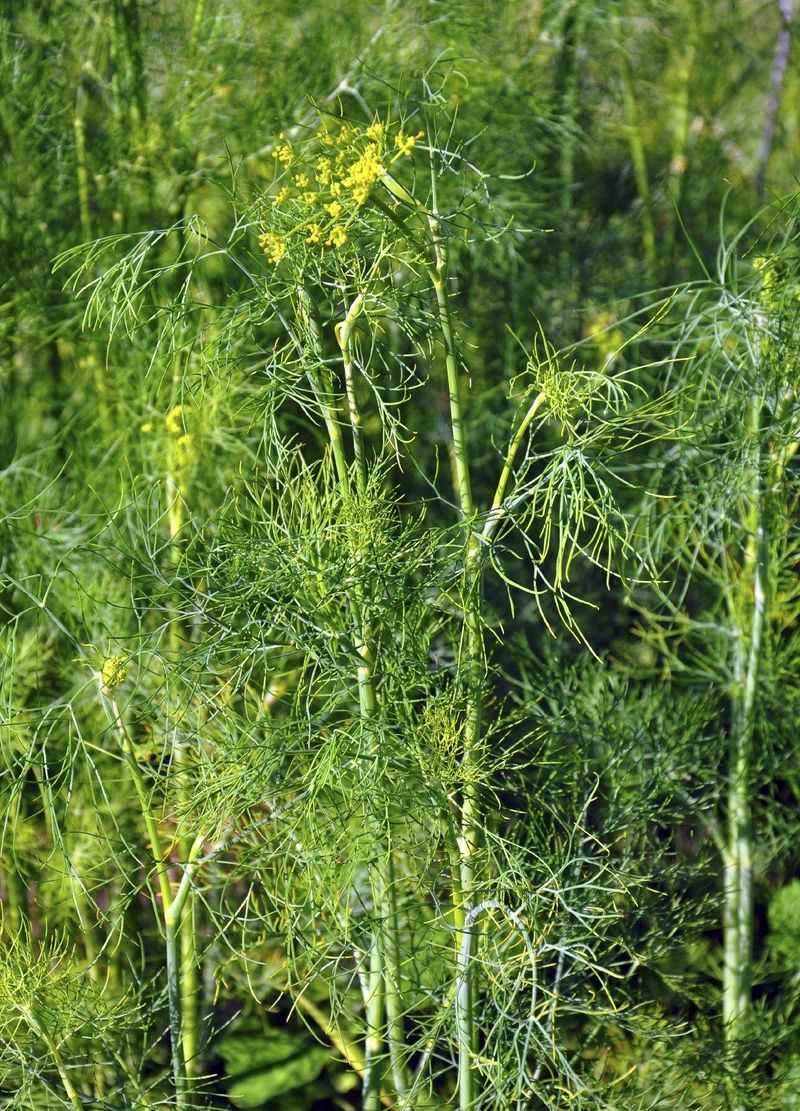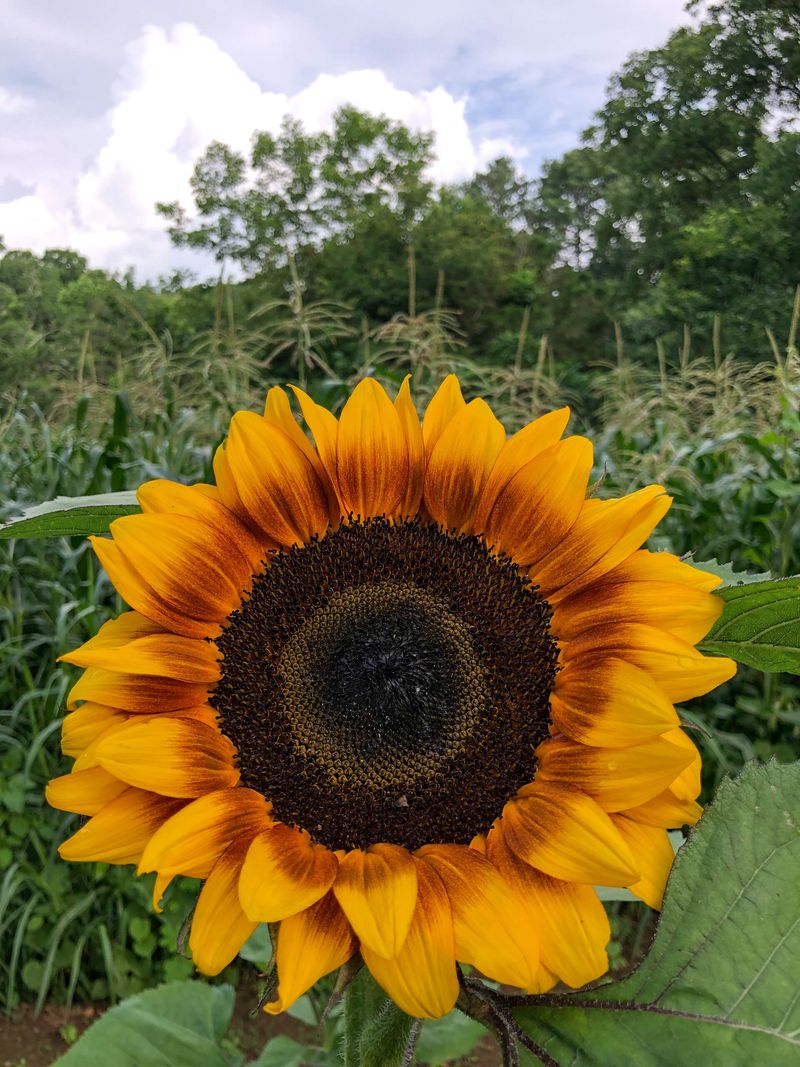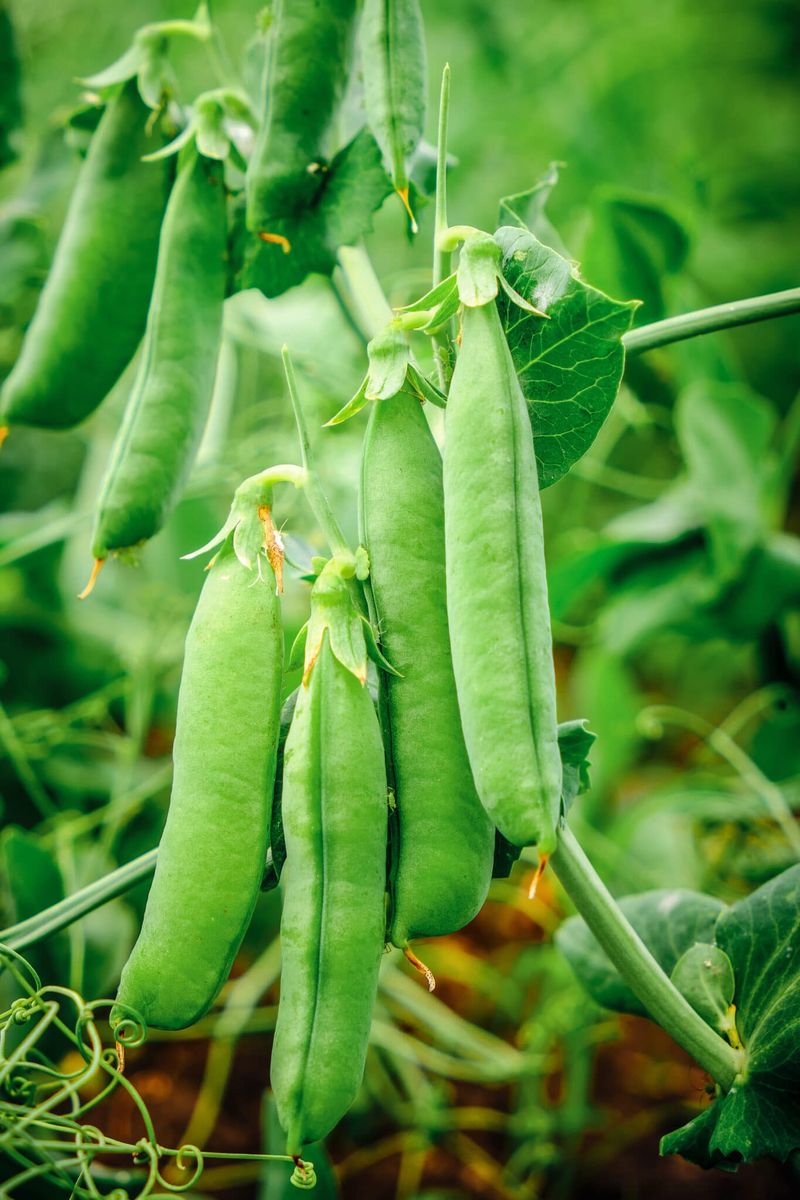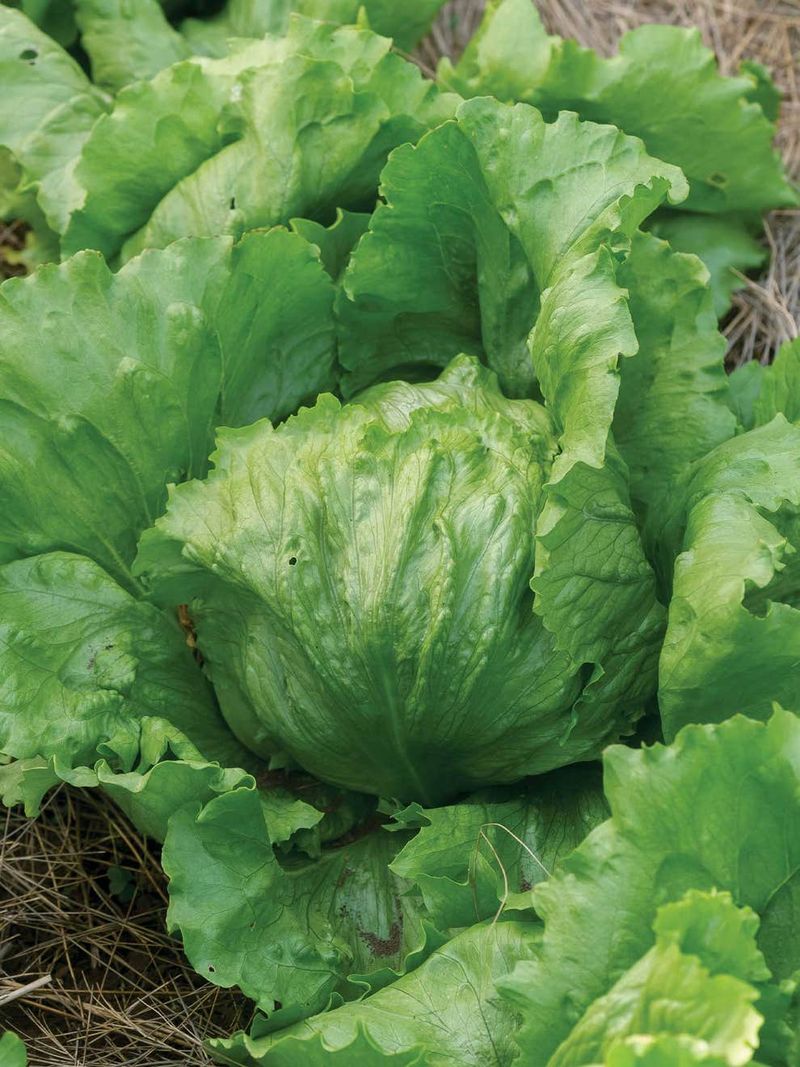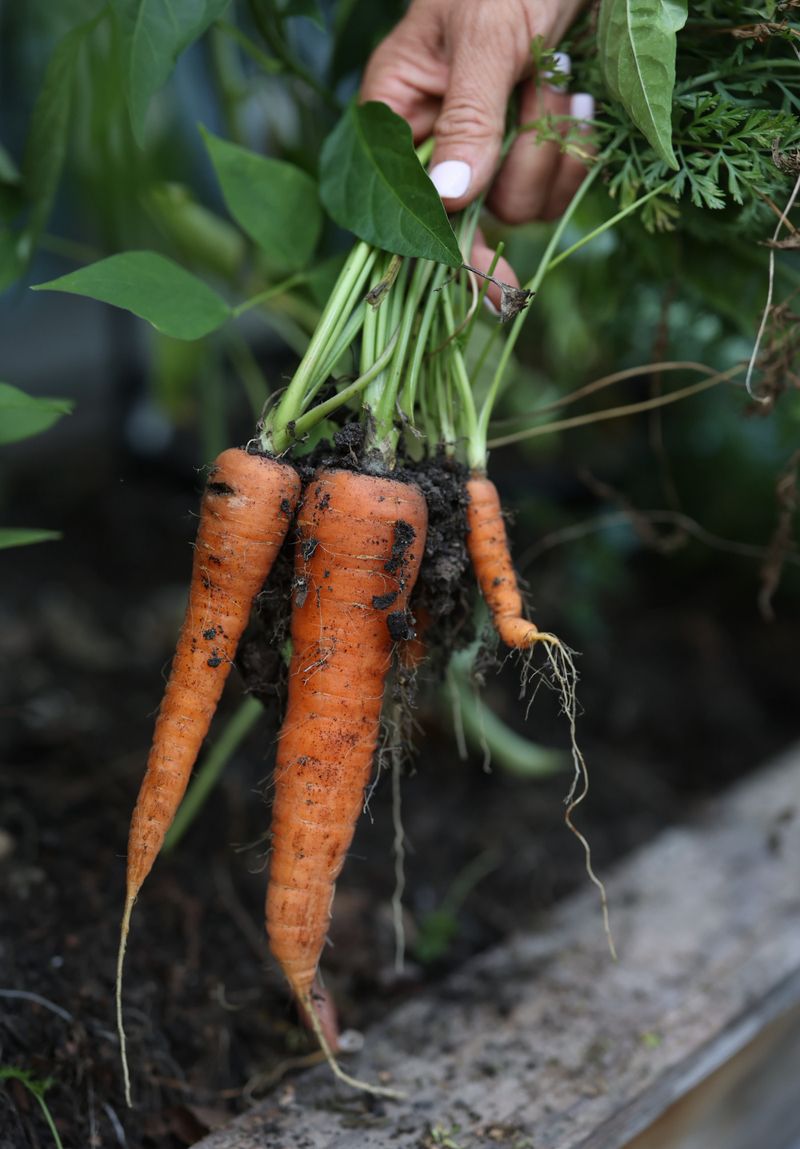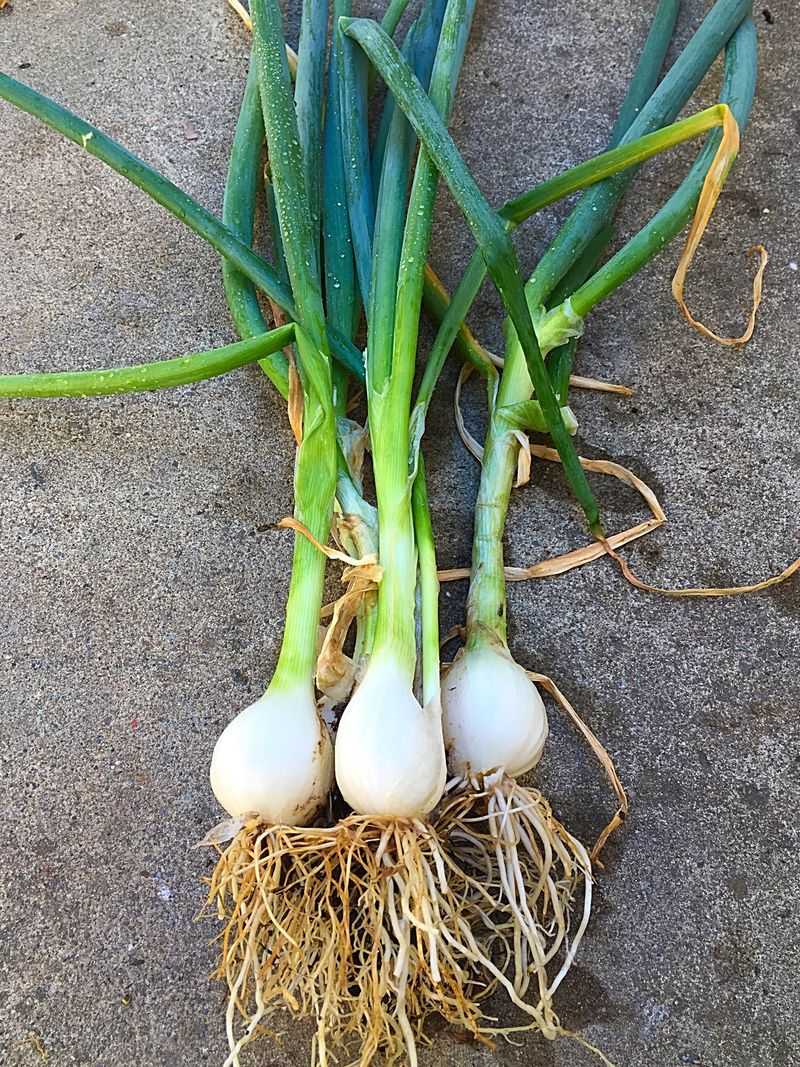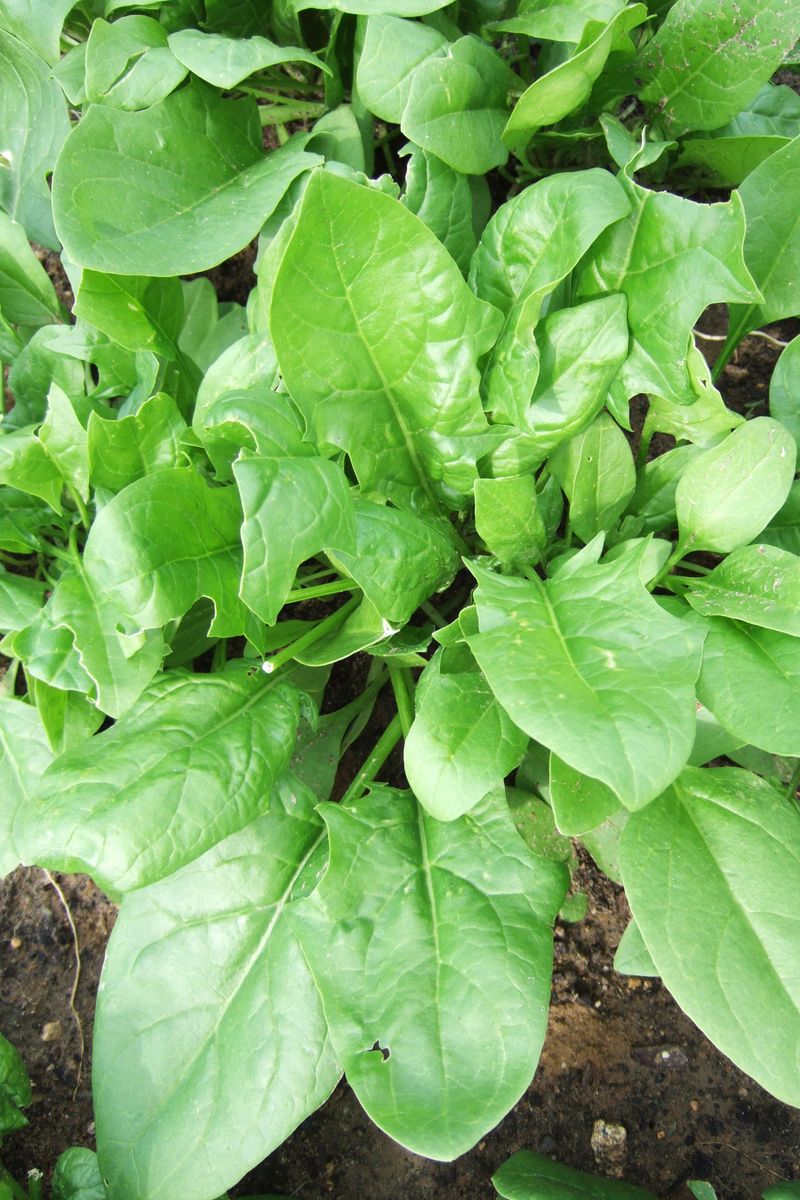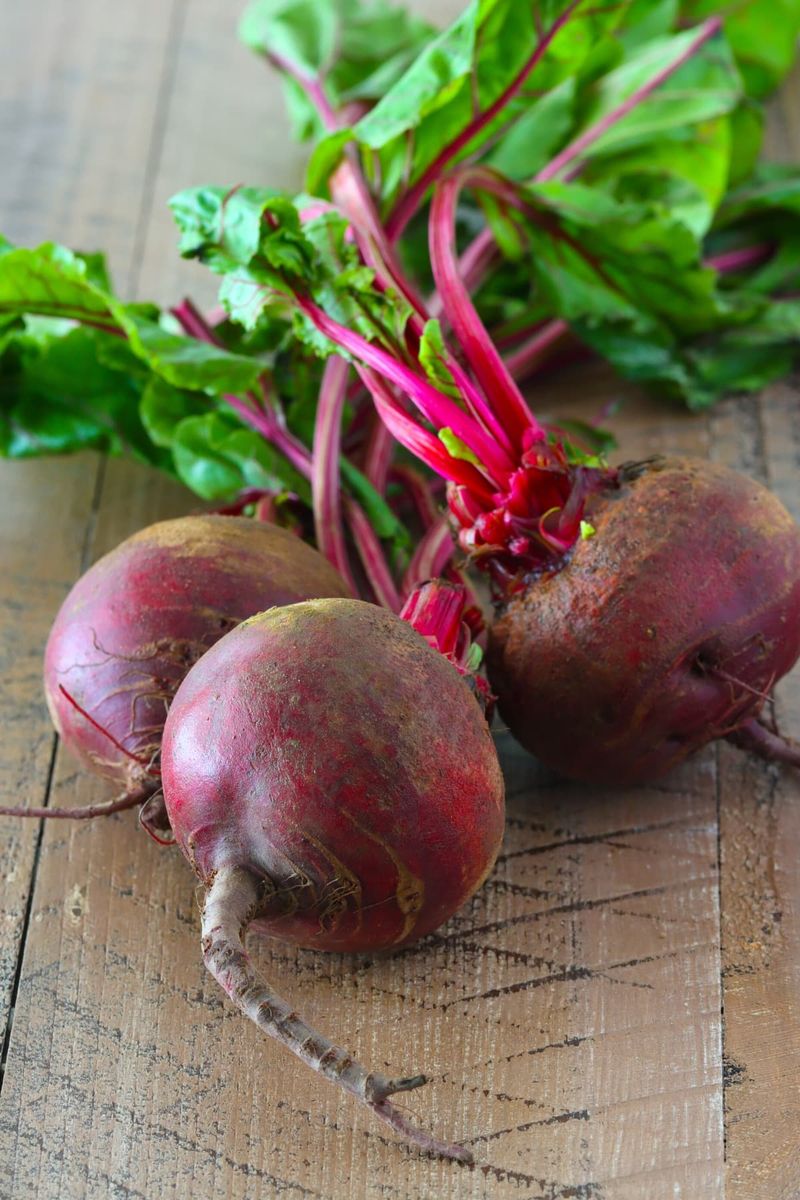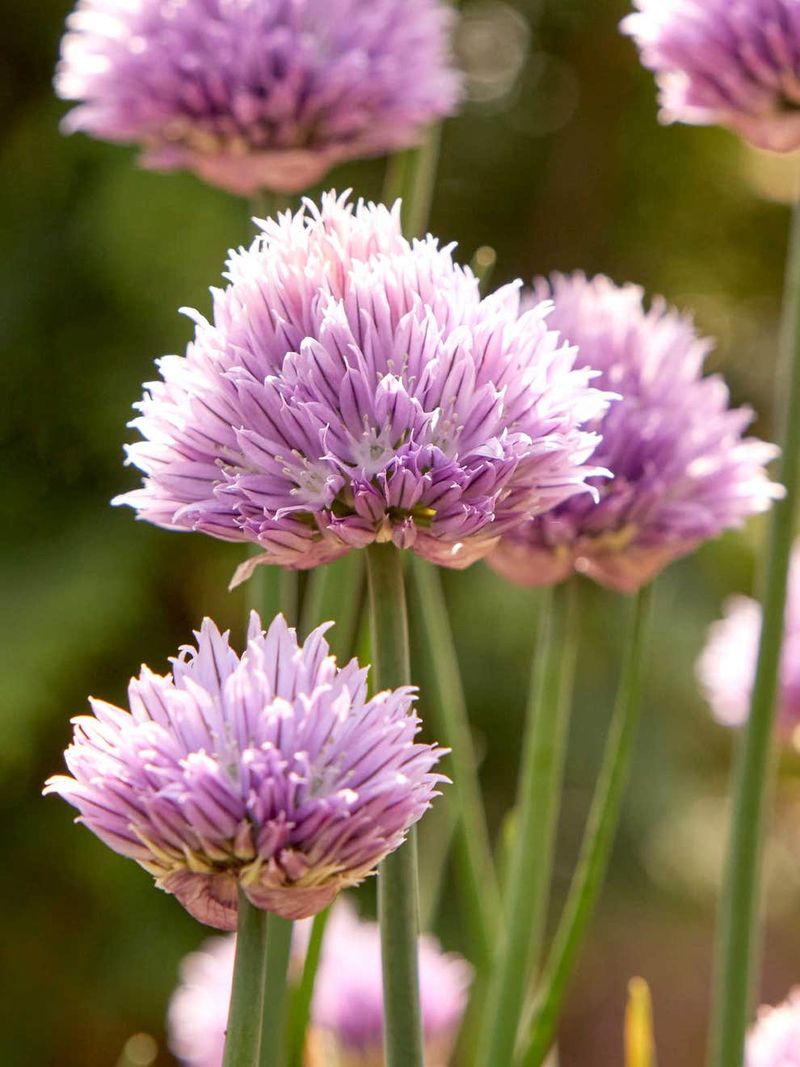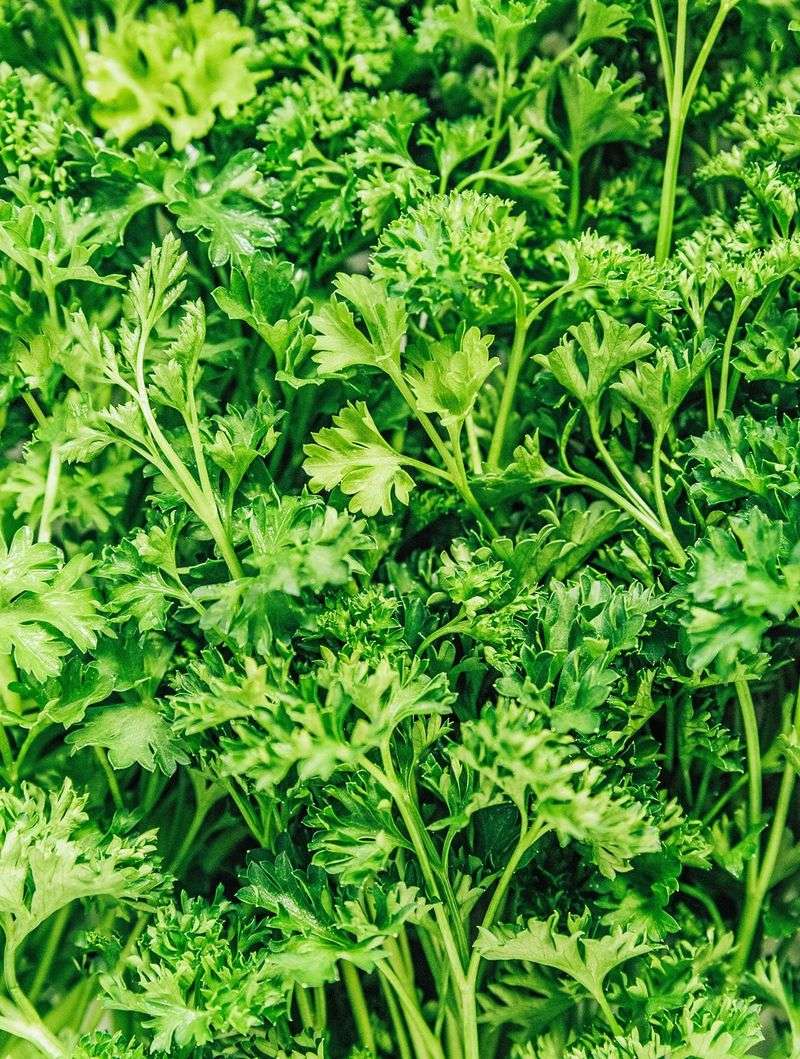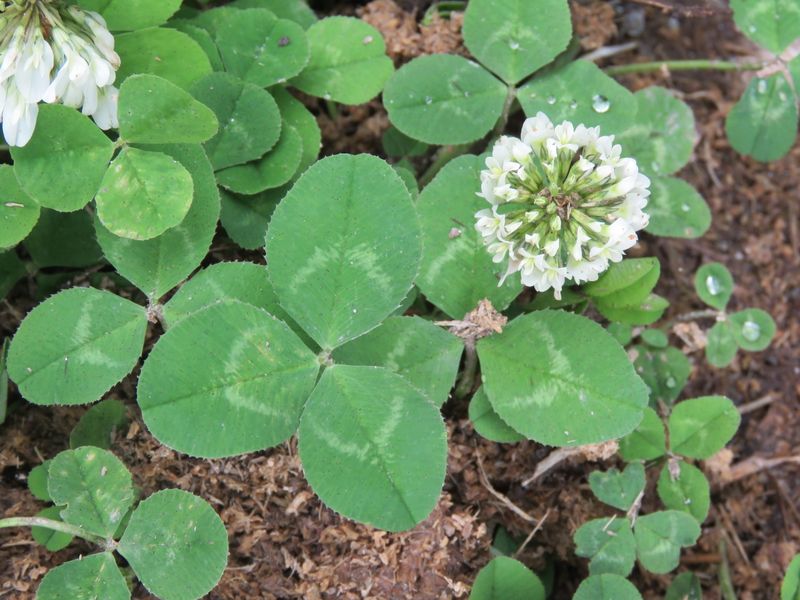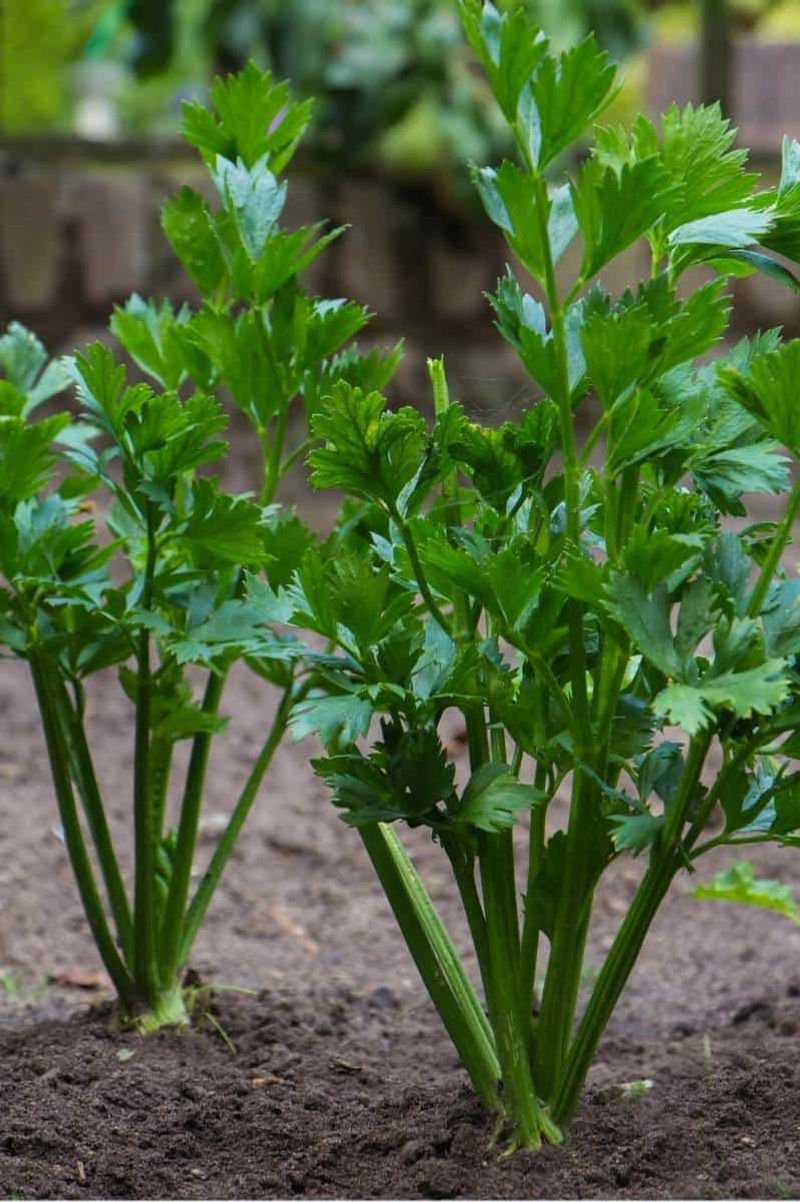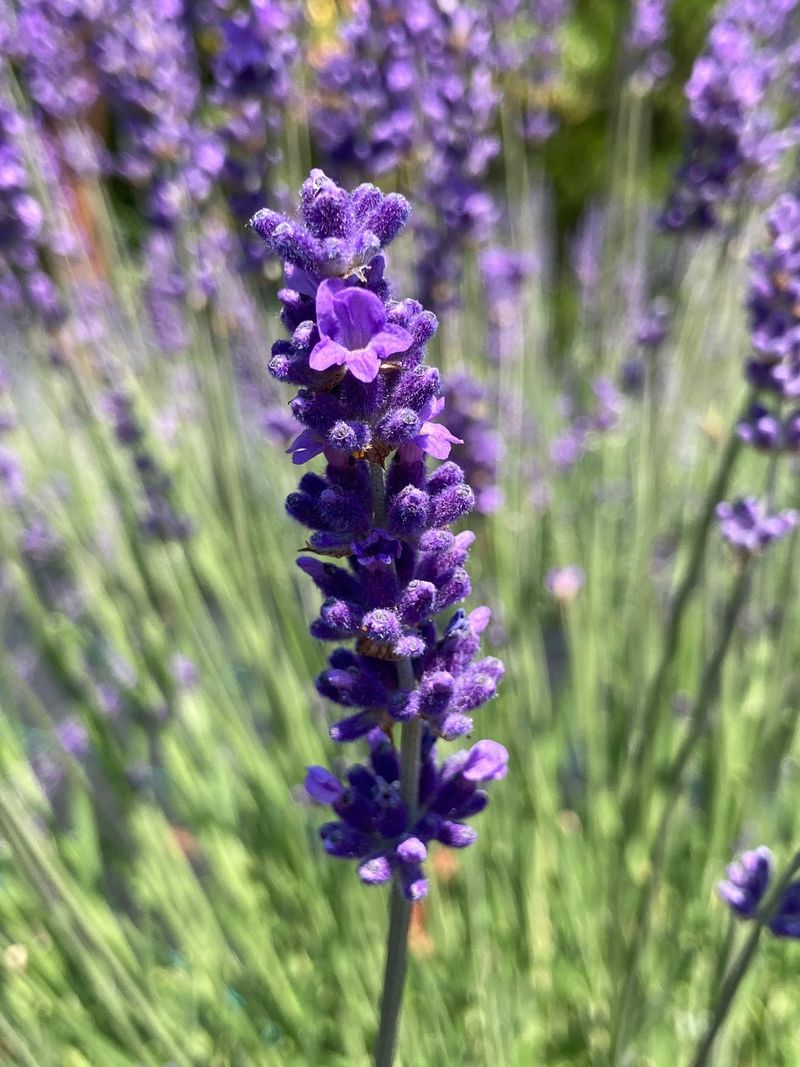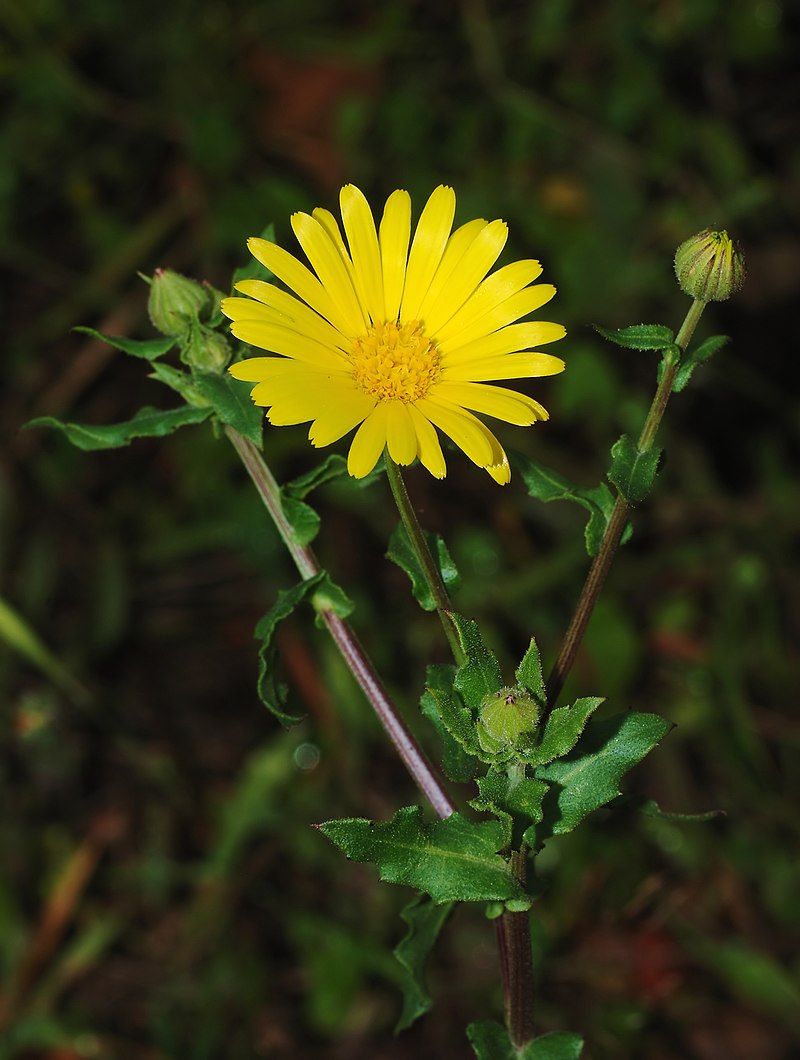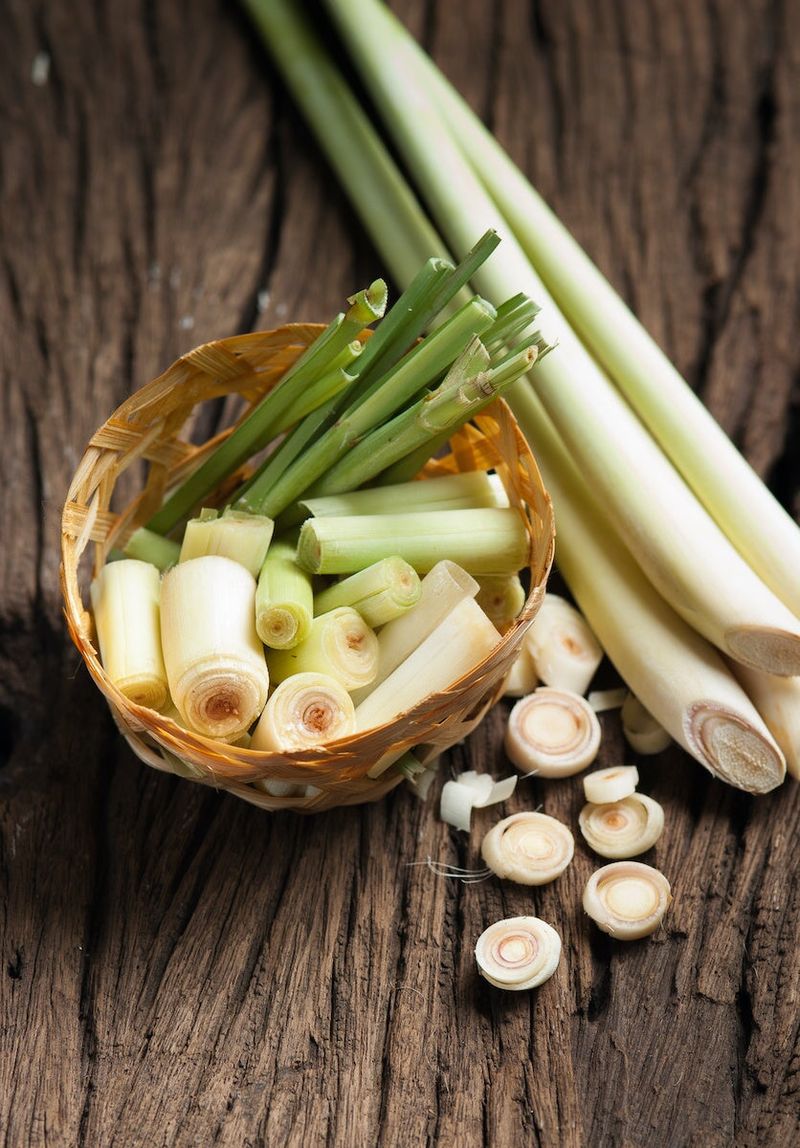Companion planting is an age-old secret to successful gardening, offering a harmonious blend of plants that support each other in growth and health.
Within the realm of cucumbers, certain companion plants can significantly enhance their productivity and taste.
By strategically placing these plants around your cucumber vines, you can create a thriving ecosystem that not only wards off pests but also enriches the soil and encourages pollination.
Join us as we explore the top 27 companion plants, each uniquely contributing to a bountiful cucumber harvest.
1. Marigold
Marigolds are not just visually appealing but also beneficial companions for cucumbers. Their bright orange blooms attract pollinators while repelling harmful nematodes. Marigolds release a substance called alpha-terthienyl, which deters pests like aphids and whiteflies. Planted alongside cucumbers, they create a natural barrier against unwanted invaders.
The aroma of marigolds confuses and wards off pests, making them a colorful, protective boundary in your garden. Their vibrant hues add visual appeal. Incorporating marigolds boosts cucumber yield and promotes a healthy garden ecosystem, proving these flowers are more than just a pretty face.
2. Nasturtium
Nasturtiums are a delightful addition to any cucumber patch, their colorful blooms offering more than just beauty. These flowers act as a trap crop, luring aphids away from cucumbers. Additionally, they attract predatory insects like ladybugs and lacewings, which feast on common garden pests.
Nasturtiums’ peppery scent is also known to repel squash bugs and cucumber beetles. Their sprawling nature provides ground cover, reducing weed growth and retaining soil moisture.
By planting nasturtiums, you not only protect your cucumbers but enhance the garden’s aesthetic appeal.
3. Radishes
Radishes are a quick-growing root vegetable that makes an excellent companion for cucumbers. Their pungent aroma deters pests like cucumber beetles, which can devastate cucumber crops. Radishes act as a sacrificial crop, drawing pests away and keeping cucumber plants safe.
By loosening the soil, radishes improve aeration and root growth, benefiting cucumbers planted nearby. Radishes can be harvested early, making room for cucumber vines to expand.
Including radishes in your garden plan ensures a healthier environment for cucumbers, boosting overall garden productivity.
4. Borage
Borage is a remarkable herb known for its star-shaped blue flowers and cucumber-like scent. It attracts beneficial insects like bees and butterflies, essential for cucumber pollination. The presence of borage enhances pollinator activity, leading to improved cucumber yields.
Borage also adds nutrients to the soil, enriching it with trace minerals. This herb is believed to enhance the flavor of nearby cucumbers.
Its sprawling growth provides shade, minimizing weeds and conserving soil moisture. Borage brings both beauty and benefits to your cucumber patch.
5. Dill
Dill is a classic companion for cucumbers, offering more than just culinary value. This fragrant herb attracts beneficial insects like hoverflies and predatory wasps, which target aphids and other cucumber pests.
Dill’s tall, feathery foliage creates a microclimate, providing partial shade and reducing soil evaporation. Its presence enhances the overall health of cucumber plants.
Planting dill nearby ensures a symbiotic relationship, as cucumbers and dill complement each other’s growth habits. Incorporate dill for a thriving, pest-resistant cucumber garden.
6. Sunflowers
Sunflowers are more than just a cheerful addition to your garden; they are excellent companions for cucumbers. Their tall, sturdy stalks provide support for climbing cucumber vines, while their bright blooms attract pollinators.
Sunflowers offer shade, reducing heat stress on cucumbers during scorching summers. Their deep roots improve soil structure, enhancing water retention and nutrient uptake.
Integrating sunflowers into your garden not only adds vertical interest but also supports a healthy, productive cucumber crop.
7. Corn
Corn serves as a natural trellis for cucumber vines, promoting vertical growth and saving space. Their towering presence also provides shade, reducing heat stress on cucumbers.
The companion planting of corn with cucumbers fosters a mutually beneficial relationship, as both plants thrive in similar conditions. Corn’s robust roots aid in soil aeration, enhancing cucumber root development.
This partnership not only maximizes garden space but also boosts the overall health and yield of your cucumber plants.
8. Peas
Peas are a fantastic companion for cucumbers, offering nitrogen-fixing abilities that enrich the soil. As legumes, peas pull nitrogen from the air, providing essential nutrients for cucumber plants.
Their climbing habit complements cucumber vines, sharing trellis space and maximizing vertical growth. Peas also attract beneficial insects, aiding in pollination and pest control.
Incorporating peas can enhance soil fertility and boost cucumber productivity, creating a symbiotic relationship that benefits your entire garden.
9. Beans
Beans, like peas, are excellent nitrogen fixers, enriching the soil for cucumber plants. Their climbing nature allows for shared trellises, promoting efficient use of garden space.
Beans attract beneficial insects that help control cucumber pests, creating a harmonious ecosystem. Their root systems improve soil structure, aiding cucumber root health.
Planting beans alongside cucumbers fosters a mutually beneficial environment, enhancing growth, yield, and overall garden productivity.
10. Lettuce
Lettuce is a cool-season crop that thrives beneath the shade of cucumber vines. Its presence provides ground cover, reducing weed growth and moisture evaporation.
This relationship benefits both plants, as lettuce enjoys the cooler, shaded microclimate, while cucumbers benefit from reduced soil erosion and competition.
Planting lettuce beneath cucumber vines optimizes garden space and fosters favorable growing conditions for a bountiful harvest.
11. Carrots
Carrots and cucumbers make a dynamic duo in the garden. Carrots’ deep roots improve soil aeration and structure, aiding cucumber root growth.
Their presence also helps deter pests like root maggots, protecting cucumber plants. Both crops thrive in loose, well-drained soil, making them ideal companions.
By combining carrots with cucumbers, you create a balanced environment that enhances soil health and boosts overall garden productivity.
12. Onions
Onions are natural pest repellents, their strong scent deterring cucumber beetles and other pests. They occupy little space, making them ideal for interplanting with cucumbers.
The presence of onions in your garden can enhance cucumber health by minimizing pest damage. Onions also contribute to soil health, improving its texture and fertility.
Incorporating onions offers a flavorful addition to garden diversity while safeguarding cucumber crops.
13. Garlic
Garlic is a powerful ally against pests, its pungent aroma repelling aphids, mites, and cucumber beetles. When planted near cucumbers, garlic acts as a natural barrier, protecting them from harmful insects.
Garlic is easy to grow and requires minimal maintenance, making it a practical addition to any garden. Its presence also enhances soil health, contributing to overall garden vitality.
Including garlic in your planting scheme ensures a pest-resistant environment for healthy cucumber growth.
14. Spinach
Spinach thrives in the shaded conditions provided by cucumber vines, making it a perfect companion. Its presence offers ground cover, reducing weed growth and soil moisture evaporation.
Spinach benefits from the cooler microclimate under cucumbers, leading to tender, flavorful leaves. In return, it supports soil health and prevents erosion.
Combining spinach with cucumbers maximizes garden efficiency and promotes a thriving ecosystem for both crops.
15. Beets
Beets offer a unique partnership with cucumbers, their deep roots improving soil structure and aeration. This enhances cucumber root development and overall plant vigor.
Beets also deter pests like root maggots, providing additional protection for cucumbers. Despite their differing growth habits, both plants thrive in similar soil conditions.
Adding beets to your garden plan enhances productivity and contributes to a balanced, healthy growing environment for cucumbers.
16. Chives
Chives are a flavorful herb that deters pests with their strong scent. Planting them near cucumbers can repel aphids and other unwanted insects.
Chives also enhance garden aesthetics with their purple blossoms, attracting pollinators. Their root system improves soil health, contributing to cucumber vitality.
By including chives in your garden, you create a natural pest defense while adding culinary value to your harvest.
17. Parsley
Parsley offers more than culinary appeal; it’s an excellent companion for cucumbers. Its presence attracts beneficial insects like hoverflies, which target aphids and other pests.
Parsley’s root system improves soil structure, aiding cucumber growth. The herb’s lush foliage provides ground cover, reducing weed competition.
Incorporating parsley into your garden enhances biodiversity and supports a healthy, thriving cucumber crop.
18. Clover
Clover is a versatile companion plant, known for its nitrogen-fixing abilities. It enriches the soil, providing essential nutrients for cucumber growth.
Clover’s dense growth habit suppresses weeds, conserving soil moisture and reducing erosion. Its small flowers attract pollinators, enhancing cucumber production.
Integrating clover into your garden promotes soil health and supports a robust, productive environment for cucumbers.
19. Basil
Basil is a fragrant herb that pairs well with cucumbers, both in the garden and the kitchen. Its strong scent deters pests like aphids and beetles, while attracting pollinators such as bees.
Basil’s presence can enhance cucumber flavor, creating a symbiotic relationship. This herb thrives in the same conditions as cucumbers, making them ideal companions.
Planting basil alongside cucumbers supports a pest-free environment and adds culinary value to your harvest, making it a garden favorite.
20. Celery
Celery offers more than just crunch to your meals; it’s a beneficial companion for cucumbers. Its aromatic properties repel pests like aphids and whiteflies.
Celery occupies little space, making it suitable for interplanting with cucumbers. Its presence improves soil health and structure, supporting cucumber growth.
By incorporating celery into your garden, you boost biodiversity and create a balanced environment for thriving cucumbers.
21. Mint
Mint is a fragrant herb that provides excellent pest control in the garden. Its strong aroma repels insects such as aphids and beetles, protecting nearby cucumber plants.
Mint spreads quickly, so it’s best planted in containers to prevent overtaking the garden. Its presence also adds culinary value, offering fresh flavors for your kitchen.
Incorporating mint ensures a pest-free environment, enhancing cucumber health and overall garden productivity.
22. Oregano
Oregano is a hardy herb with pest-repelling properties, making it an ideal companion for cucumbers. Its aromatic leaves deter insects like aphids and spider mites.
Oregano also attracts beneficial pollinators, supporting cucumber fruit development. The herb’s low-growing habit provides ground cover, reducing weeds and conserving moisture.
By planting oregano, you create a resilient ecosystem that promotes healthy cucumber growth and enhances garden biodiversity.
23. Sage
Sage is a robust herb known for its pest-repelling properties. Its strong aroma deters cucumber beetles and other pests, safeguarding your cucumber harvest.
Sage also attracts beneficial pollinators, enhancing cucumber fruit set. The herb’s presence contributes to soil health, improving its fertility and structure.
Including sage in your garden ensures a protected and thriving environment for cucumbers, supporting a bountiful harvest.
24. Thyme
Thyme is an aromatic herb with pest-deterring qualities, making it a valuable companion for cucumbers. Its scent repels harmful insects, while attracting beneficial pollinators.
Thyme’s low-growing habit offers ground cover, reducing weeds and moisture loss. The herb’s presence supports soil health, enhancing cucumber growth.
Adding thyme to your garden plan fosters a healthy, pest-resistant environment, ensuring productive cucumber plants and a diverse garden ecosystem.
25. Lavender
Lavender is more than just a fragrant flower; it’s an excellent companion for cucumbers. Its strong scent deters pests like moths and beetles, protecting cucumber plants.
Lavender attracts pollinators, supporting cucumber fruit development. Its presence also adds visual and aromatic appeal to your garden.
Incorporating lavender fosters a harmonious ecosystem, enhancing cucumber health and contributing to a beautiful, productive garden.
26. Calendula
Calendula, also known as pot marigold, is a vibrant addition to any garden, offering more than just beauty. Its blooms attract pollinators, enhancing cucumber fruit set.
Calendula also deters pests like aphids and whiteflies, providing natural protection for cucumbers. The flowers offer ground cover, reducing weed competition and conserving moisture.
By planting calendula, you support a thriving ecosystem that boosts cucumber health and garden productivity, all while adding a splash of color.
27. Lemongrass
Lemongrass might not be the first companion plant that comes to mind for cucumbers, but its tall, aromatic grasses can play a vital role in your garden. Its distinct citrus aroma acts as a natural pest deterrent, keeping cucumber beetles and other harmful insects at bay.
Moreover, lemongrass can enhance air circulation around cucumber plants, reducing the risk of fungal infections. Its vertical growth habit means it won’t compete for ground space, allowing cucumbers ample room to sprawl and thrive.
With its unique benefits and exotic appeal, lemongrass adds both functionality and aesthetic value to your cucumber patch.
